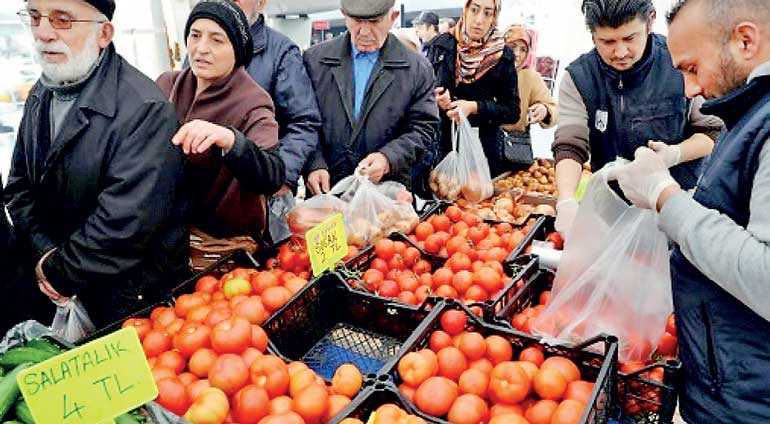Tuesday Feb 17, 2026
Tuesday Feb 17, 2026
Tuesday, 12 March 2019 00:00 - - {{hitsCtrl.values.hits}}

ANKARA (AFP): Turkey’s economy fell into its first recession in a decade, official data showed on Monday, just weeks before President Recep Tayyip Erdogan’s Government faces local elections where growth and inflation will be key issues for voters.
Economic output contracted by 2.4% in the final three months of the year compared to the third quarter on a seasonally and calendar-adjusted basis, the Turkish Statistics Institute (TUIK) said.
That followed a revised 1.6% contraction in the third quarter. Two consecutive quarter-on-quarter contractions in economic output is widely considered to be the definition of a recession.
The flagging economy coupled with a currency crisis last year that battered the lira are sensitive issues for Erdogan and his ruling Justice and Development Party (AKP) before the municipal vote on 31 March.
The Turkish leader, in power since 2003 first as prime minister and then as president, has often boasted of the country’s strong growth during his time in government.
Growth came in at 2.6% for 2018 overall, but that was still much lower than the 7.4% recorded in 2017, a turbulent period following the 2016 failed coup and terror attacks.
The economy shrank by 3% in the fourth quarter of 2018 compared with the same period the previous year.
Inflation has also remained high. It struck a 15-year peak in October at 25.24% before falling below 20% in February, with food prices hit particularly hard.
Erdogan’s government has sought to curb consumer prices, especially for produce consumed everyday in Turkish households.
Turkish authorities last month set up their own vegetable stands in a bid to force markets to lower food prices.
But analysts said economic data showed inflation was still weighing on household consumption, and domestic demand was weak.
Turkish Finance Minister Berat Albayrak, who is also Erdogan’s son-in-law, said on Twitter the data was as expected, but “the worst is behind us”.
That analysis was shared to some extent by the London-based Capital Economics research firm, but they offer cold comfort for Turkey’s economic outlook.
“While the worst of the downturn may now have passed, the weak carryover means that we expect GDP to decline by 2.5% this year,” said Jason Tuvey, Senior Emerging Markets Economist at Capital Economics.
Albayrak blamed the recession on “speculative attacks” and the current global economic slowdown.
While Turkey’s economy was hit when US President Donald Trump doubled tariffs last year on Turkish steel and aluminium, confidence was further eroded by a bitter row over a detained American pastor.
The lira plummeted in value in August. While an aggressive interest rate hike in September helped brake its fall, economic activity stalled while prices of goods shot higher.
The last time Turkey entered a recession was in 2009 after the global economic crisis hit foreign and domestic demand.